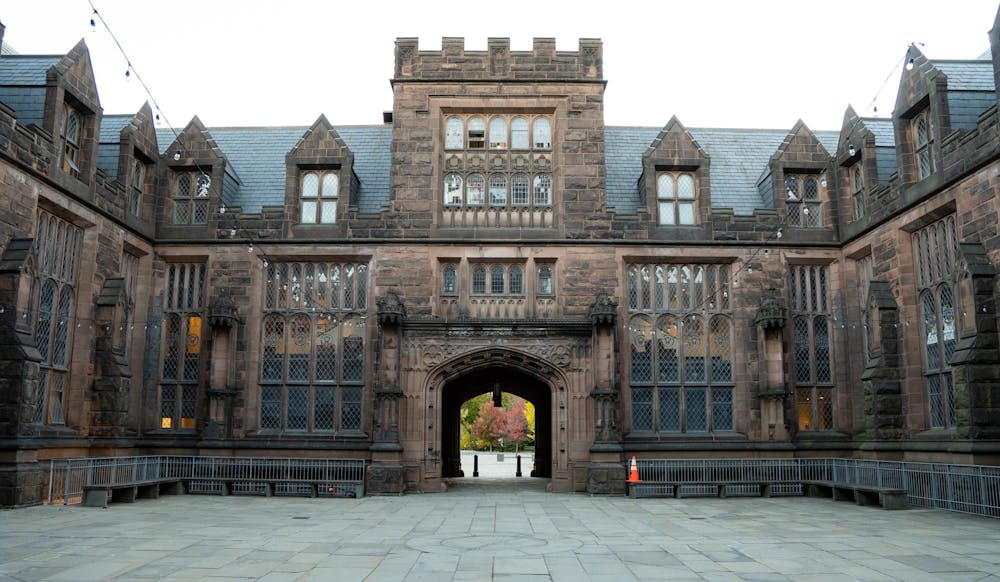In the spring of my first year at Princeton, a friend, unprompted, suggested that I join Manna Christian Fellowship. I hadn’t heard of it, so I asked him what that was. In response, he described it broadly as “this Asian Christian group” that he’d been to a couple times, before correcting himself: “Not even Asian, actually. It’s really Korean.”
After joining, I realized that this view — that Manna is an “Asian group” — is strikingly common on campus. Other students who I conversed with, regardless of their race or religion, have tended to label Manna similarly. The racialized image of the group, whether it be as an Asian or even an exclusively Korean space, nearly always comes up when Manna is mentioned.
Although it is not innately a bad thing when a religious group doubles as an ethnic or cultural affinity space, it does become harmful when that aspect defines the primary narrative surrounding it. Manna is not an exclusively Asian group — and accordingly, racial exclusion should not be its defining image. By reinforcing this definition, Princeton’s student body inadvertently perpetuates the racial homogeneity of the religious groups it stigmatizes as racially exclusive.
Christianity is a large and diverse religion in the United States: in 2020, 42 percent of Americans identified as non-Catholic Christians and 33 percent of them as non-Catholic Christians of color. At Princeton, of the 18.9 percent of the Class of 2024 that was Christian, about 40 percent were students of color.
Christianity is also the most practiced religion on campus. By contrast, the three next-most prevalent religions on campus, Judaism, Hinduism, and Islam, made up 9.5 percent, 3.8 percent and 2.4 percent of the religions that the Class of 2024 practiced, respectively.
Rather than driving integration, however, the large Christian population has instead divided itself among different groups. Accordingly, three main groups have emerged to serve that need: Manna, Christian Union Nova (CU Nova), and Princeton Christian Fellowship (PCF). But as these groups have developed, so have their strong affiliations by race. This view is so pervasive that on one Reddit thread trying to explain the Christian landscape at Princeton to a prospective student, four of 12 comments mentioned or reinforced the racial makeups of the groups.
When discussing the Asian representation in Manna, some students attribute the current Asian population of Manna to its founding. In an interview, Acting President of Manna James Jun ’25 further spoke to this, saying that “the people who started it [Manna] were Korean, but they weren’t starting it as a Korean group.”
“First-years or people who come for the first time, it’s very easy to misinterpret it that way. Which is why I would like to say upfront that it is a misconception,” he continued. The primarily Asian membership of Manna may have “its roots historically, but we don’t call ourselves the Asian group on campus. It’s just kind of the way it happens to be.”

Racial segregation of religious groups, even as pervasive as the ones Princeton faces, should not be discussed as an outcome of intentional desire for homogeneity. Perhaps this is “the way it happens to be” simply because students gravitate towards choosing communities that are familiar to them.
It is natural to consider cultural or racial affinity as a factor when students seek community on campus. After all, few would disagree that affinity groups foster belonging on campus, especially among geographic or racial minorities. For many, religion is sensitive, personal, and ineffably difficult to organize under a single definition. Accordingly, as students share their faith with others, it’s not entirely unsurprising that students would seek out a community they feel an intimate connection to.
And the cultural affiliation with Manna — and other Christian groups — is not necessarily bad, as different people worship differently depending on their background and how they were raised.
“When we bring things into the scope of our school, it is true that we [the three fellowships] have style differences and slight culture differences,” Jun said. “[But] none of the groups make it a part of our identity to be split up by ethnicity.”

Even when the popular narrative suggests otherwise, Manna directly disputes the claim that it is only for Asian students on campus. In the same way that Rocketry Club or Club Soccer aren’t associated with one racial group, Manna has been vocal about wanting to do the same. They state on their website that Manna is “not restricted to any particular group of culture, but thrives in the midst of diversity.”
I recognize that Manna’s stereotypes are based in truth. But it’s not accurate to speak about the racial differences between the groups as a matter of intentional exclusion. It is, in fact, the pejorative stereotype of intentional exclusion that perpetuates that narrative: so long as students’ cultural perceptions are unable to dissociate Manna from its Asian label, this narrative about Manna will continue to alienate students from other races, regardless of Manna’s own behavior.
In Jun’s words, “The bottom line is that we want to be warm, welcoming, and accepting of people without the exclusiveness of being Asian American.”
There is already a step of faith people take in considering religion. If they do so, and even if they don’t, I hope that students can take that same step of faith to trust that Manna is a group focused not on Asianness or cultural homogeneity, but rather on providing community for any student who seeks it out.
Sarah Park is a contributing Opinion writer for the ‘Prince’ and a sophomore. She is from Manila, Philippines, and can be reached at sarahpark[at]princeton.edu.
Correction: A previous version of this piece incorrectly stated that the most common non-Christian religious affiliations among the Class of 2024 were Judaism, Islam, and Buddhism. In fact, Hinduism is the second most common religion after Christianity.








